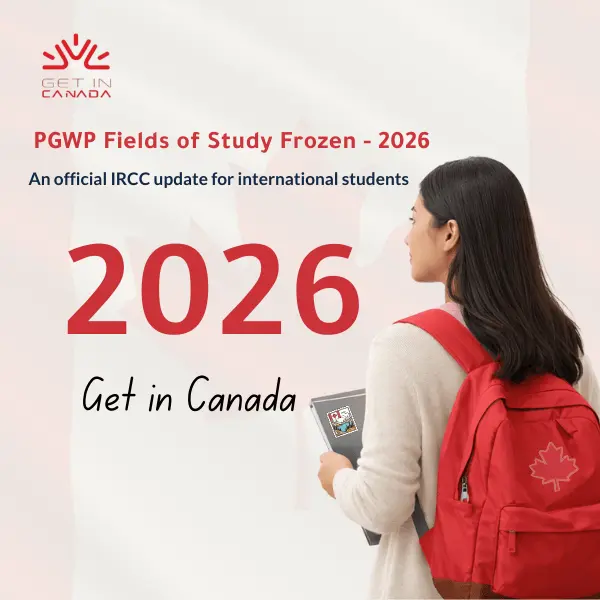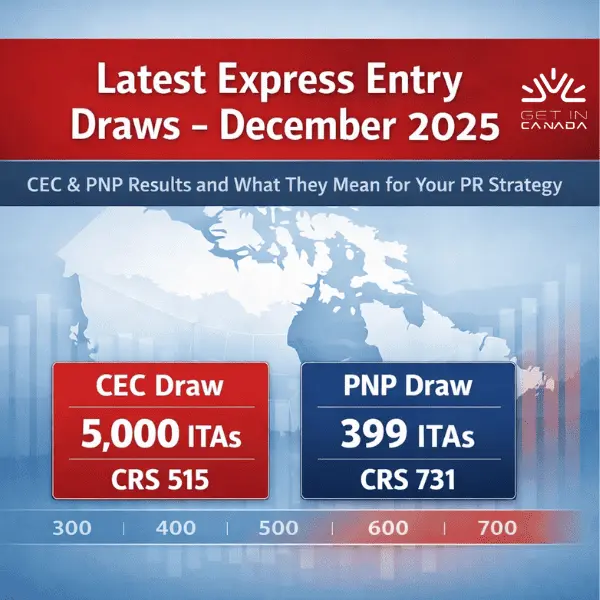Over 100,000 Spousal Open Work Permit to be reduced by IRCC
In a recent update on the situation with Canada’s temporary resident programs, Immigration Minister Marc Miller shared important updates to the rules for Spousal Open Work Permits (SOWP).
On September 18, Minister Miller explained that new limits would be placed on SOWP eligibility for spouses of students in certain doctoral, master’s, professional, and pilot programs. One of the changes is that only spouses of master’s students in programs lasting at least 16 months will be eligible for a work permit.

Earlier this year, IRCC announced that Spousal Open Work Permits (SOWPs) would only be available to spouses of students in certain master’s or doctoral programs at Canadian designated learning institutions (DLIs), with a few exceptions for high-demand undergraduate degrees.
IRCC also decided to include master’s and doctoral students in the 2025 limit on study permits, reserving 12% of the 437,000 permits for these students. However, these students are not part of the 2024 limit. While no other specific changes were mentioned, IRCC expects that 50,000 fewer SOWPs will be given to spouses of international students over the next three years.
Find out if you are eligible to get in Canada →
Changes for Temporary Foreign Workers’ Spouses
IRCC is also making changes to Spousal Open Work Permits (SOWPs) for temporary foreign workers. Only highly skilled workers’ spouses, like executives, scientists, engineers, lawyers, professors, technicians, or those working in industries experiencing skills shortages, register.
These changes are expected to reduce the volume of SOWPs issued by 100,000 over the next three years.
How to apply for a Spousal Open Work Permit (SOWP)?
There is no official date yet for the new rules on SOWPs. But as of April 30, spouses of international students can apply for a SOWP if their partner is studying in a master’s, doctoral, or one of these professional programs:
- Medicine (MD)
- Engineering (B.Eng., BE, BASc)
- Optometry (OD)
- Pharmacy (PharmD, BS, BSc, BPharm)
- Doctor of Dental Surgery (DDS, DMD)
- Law (LLB, JD, BCL)
- Nursing (BScN, BSN, BNSc)
- Education (B.Ed.)
- Veterinary Medicine (DVM)
To apply, IRCC will need one of these from the sponsor:
- A valid acceptance letter from their school
- A letter confirming, they are enrolled in their program;
- Transcripts from their current studies
Applicants must also provide proof of their relationship to the student and, if necessary, proof that they are part of an eligible pilot program. If approved, the SOWP will be valid for as long as the student’s study permit.
Changes Affecting Temporary Residents
For this year, IRCC has introduced certain key changes that affect temporary residents, particularly the Spousal Open Work Permits (SOWPs). Here’s what you need to know about these changes:
Study permit limits
To ensure proper handling of the applications, IRCC will limit the total of study permits issued in the year 2024. It is planned to continuously decrease this number in 2025.
New language requirements for work permits: Canadian Language Benchmark (CLB) Standards
- If you have a university degree, you will be required to reach a CLB score of 7 at least on reading, writing, speaking, and listening.
- For college graduates, the required CLB score is 5.
These changes reflect IRCC’s efforts to ensure that temporary residents can successfully integrate into Canadian society and the workforce.
Expected Release for the upcoming immigration levels plan
Further breakdown of the plan and the number of temporary residents planned for the country will be outlined in the immigration levels plan for the year by November 1. This will be the first time temporary resident levels are included in this plan, which sets Canada’s immigration targets for the next three years.
Temporary Resident Statistics
- Recent Arrivals: In 2023, over 2 million temporary residents came to Canada.
- Goal for Reducing Population: According to Minister Miller, it is planned that the number of temporary residents should be decreased to 5% of the total population within three years, starting from the present 6.5%.
- Economic Context: He said this in response to the changes in the Canadian economy due to the COVID-19 pandemic, stating that the previous measures to increase the workforce are now irrelevant. Changes Affecting Temporary Residents
IRCC’s plan to cut over 100,000 Spousal Open Work Permits (SOWPs) in the next three years is part of a bigger effort to manage the number of temporary residents in Canada. With limits on study permits and new language rules for work permits, these changes show a shift in immigration policy to better balance the needs of temporary residents with Canada’s long-term goals. People affected by these changes need to stay informed and understand the new requirements to keep their applications and status on track.











